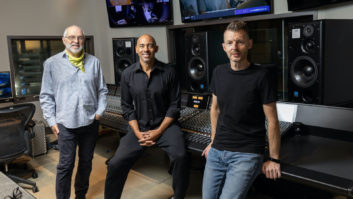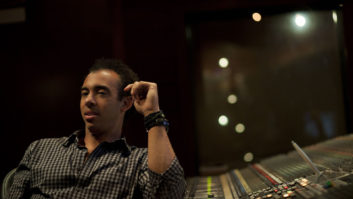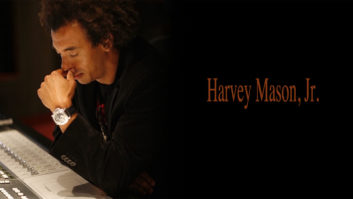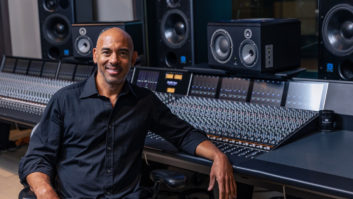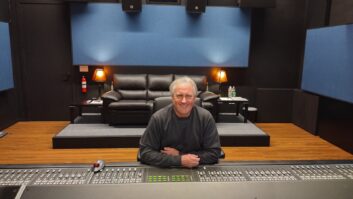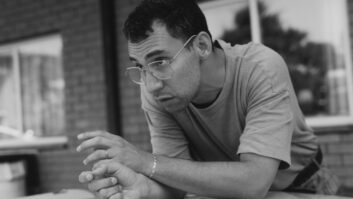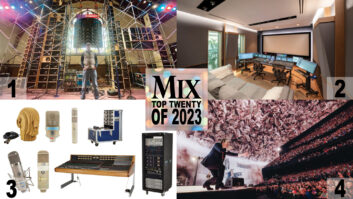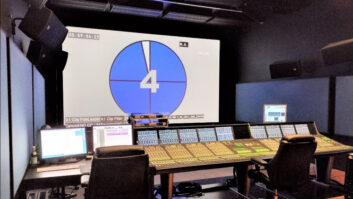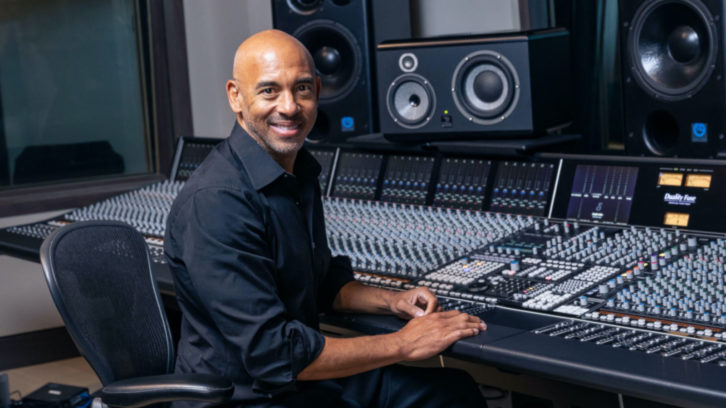
Music courses through Harvey Mason, Jr.’s veins. His parents, both trained musicians, moved the family to Los Angeles not long after he was born, and he would sit in his baby rocker under the table while his mom watched his dad, renowned drummer Harvey Mason, Sr., during performances. Growing up, he would hang out with his dad at L.A. studio session dates. He famously got his first writing credit at age 8, with a tune his dad took to saxophonist Grover Washington, Jr. to record.
Fast-forward several decades and Mason now has a long, long list of writing and production credits to his name, from Aretha Franklin to Michael Jackson and beyond, plus an armful of Grammy Awards nominations. As the 2000s got under way, he also branched out into movie production, having been writing and producing music for film and television since the late 1990s.
Along the way, initially as co-founder—with Damon Thomas—of music production team The Underdogs and now as head of Harvey Mason Media, he has built a number of facilities around the Los Angeles area. The latest is a revitalization of the Evergreen Stage, a former 1940s movie theater-turned-recording studio, with a coming-soon expansion across the street into the former Enterprise Studios, a legendary recording facility established by Craig Huxley in the mid-1970s.
Grammy Engineering and Production Nominations Announced
As if he’s not busy enough, Mason—who was elected to the board of directors of the Recording Academy’s L.A. chapter in 2007 and has served in a variety of national positions since then—recently accepted the role of Recording Academy President/CEO, having served as interim president since January 2020.
In early January 2021, right in the middle of a busy, busy week that included the decision to postpone this year’s Grammy Awards, the ever-gracious and engaging Mason sat down to talk with Mix about his life in music, film and television, as well as his work with the Recording Academy.
Mix: What rooms are currently open at Evergreen, and what are the plans as you expand?
Harvey Mason, Jr.: I’m part of a group that has come together to build this as a music and entertainment camp. The goal is to not just have one studio or room, but a place that can be a hub of music and creativity and entertainment.
At Evergreen, we have our scoring stage open, which is a large room that can hold 70, 75 musicians, where we can do scoring to picture. That room has an SSL Duality Fuse in it. Then we have our dub stage, a Dolby Atmos-certified room with a Meyer Sound monitor system and an Avid S6 console. That’s been up and running for six weeks. We’ve just done our second Atmos project in that room. Then we have some production rooms, smaller writer’s rooms and editing rooms that are up and running.
At Enterprise, we are about to break ground on the main large room. We’ll have another Duality Fuse in there, which we’ve already received. Attached to that will be a large performance room with multiple iso booths that can house a big band or small orchestra. Major construction starts in the next couple of weeks. And there are six other studios at Enterprise that we will also be renovating, upgrading and turning into studios, one by one.
What were the two Dolby Atmos projects? And what are your thoughts about Atmos as a platform?
One was an immersive mix for an artist project, and one was for a streamer. If done right for music for film and TV, it’s kind of a no-brainer. You can really get an immersive experience if you’re sitting in the theater or have a great system at your house.
For records and performance pieces, it’s a little bit more challenging. I think a lot of people are mixing in a way that’s not conducive to enjoying the music as it was intended to be listened to. Just because you have a joystick doesn’t mean you need to use it on every instrument. I try to make a stereo field that sounds good and sounds exciting. Then I use the immersive capabilities to make it more interesting and more like you’re in the song, as opposed to the novelty tricks, like flying things around your head. If done musically and tastefully, it can make the listening experience even more enjoyable, and you can get even deeper into the music.
